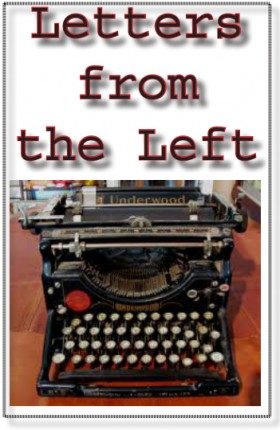This is my friend, Russell Johnson (photo taken from his Facebook profile because I couldn’t find any of the ones I’ve taken of him), who volunteers for a local Internet radio station.
Russell has been to several Moral Monday and other social justice events, and I have never seen him act inappropriately. He’s always positive, and usually funny. He’s articulate and intelligent. He is a member of Veterans for Peace.
Russell went to Ferguson to report on events there, and that’s when he got into trouble.
From what I understand, he was interviewing someone and the police told him to move on. A friend reported that he did comply with the order, but he was arrested anyway.
The police beat him to the ground and then arrested him, dragging him off because he couldn’t walk.
He spent several hours in jail before he was released, and then had to undergo treatment for a separated shoulder. It will require surgery.
Right now, that’s all the details I have, but it’s enough to make my blood boil.
I’m nonviolent. I believe very strongly that violence only begets more violence. That doesn’t mean I’m never tempted to do violence to someone, and my first impulse was that I wanted to slap those cops silly.
If I had been the one interviewing, would I have been beaten senseless and dragged off to jail? I don’t think that’s likely.
Police most often direct their brutality at people of color — especially young men.
![]()
![]() I’m tired of hearing Ferguson isn’t about race. It IS about race. It is all about race. We have found a new way to enslave African-Americans and it’s in our so-called “justice” system.
I’m tired of hearing Ferguson isn’t about race. It IS about race. It is all about race. We have found a new way to enslave African-Americans and it’s in our so-called “justice” system.
If this wasn’t about race, why were the National Guard not in Ferguson but stationed in white neighborhoods nearby? If the death of Michael Brown wasn’t about race and was justified, why are people the world over so upset?
If Michael Brown’s death wasn’t about privilege, why did the prosecutor have to pervert the Grand Jury process?
Even some conservatives have looked at the evidence released by the prosecutor and are incredulous that there was no indictment of the officer who shot Michael Brown.
Even if Russell didn’t stop interviewing someone when an officer told him to move on, did that officer order others to move on? I don’t know. I’m eager to talk to Russell when he gets back to Asheville.
What I do know is that a decent man was beaten senseless for no good reason. Once again, nonviolent resistance was met with brute force.
I do know that Russell would not have thrown the first punch. The cops were not reacting to a real threat.
When someone doesn’t move when ordered, the first response should never be to beat him with clubs until he can’t even walk.
Even if Russell mouthed off, the response was inappropriately violent.
I guess I should be grateful my friend wasn’t shot and killed, but I refuse to accept that kind of crumb. Russell could have been killed by their nightsticks. Would they then say he had attacked them? Would they have gotten away with murder?
I’m willing to bet they get away with assault. After all, Russell is a black man. It seems they’re justifiably threatened (in their eyes) by that mere fact.
I am furious, but I also know we can’t answer violence with violence. We have to stand in solidarity. We have to stand in peace.







